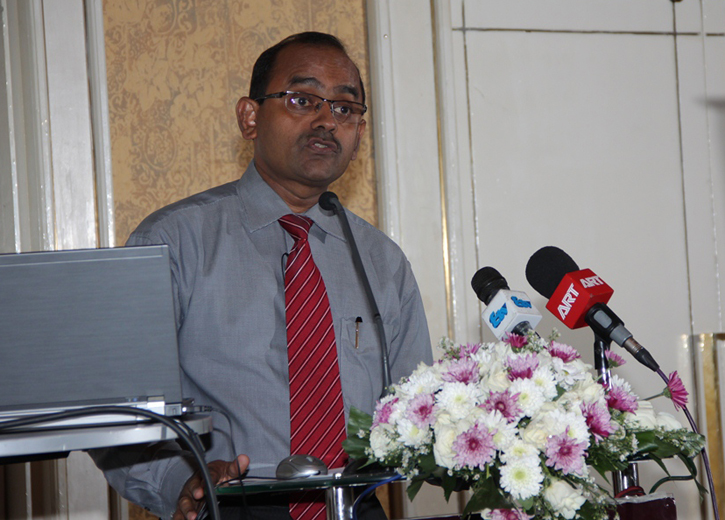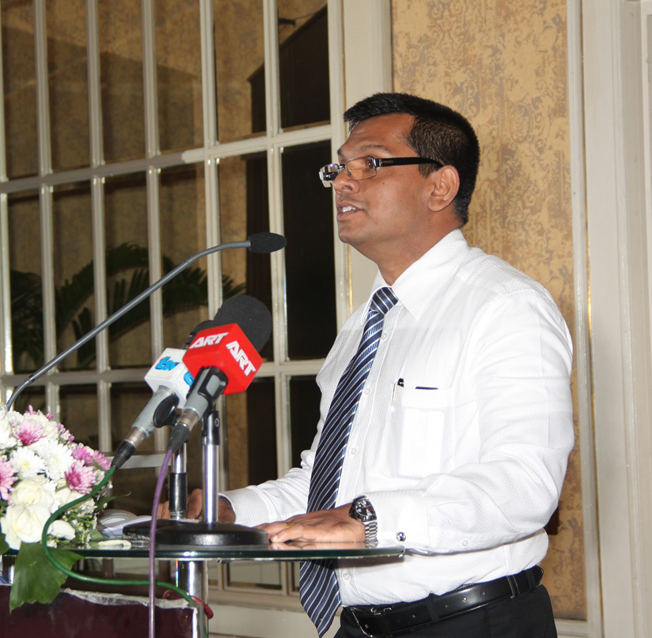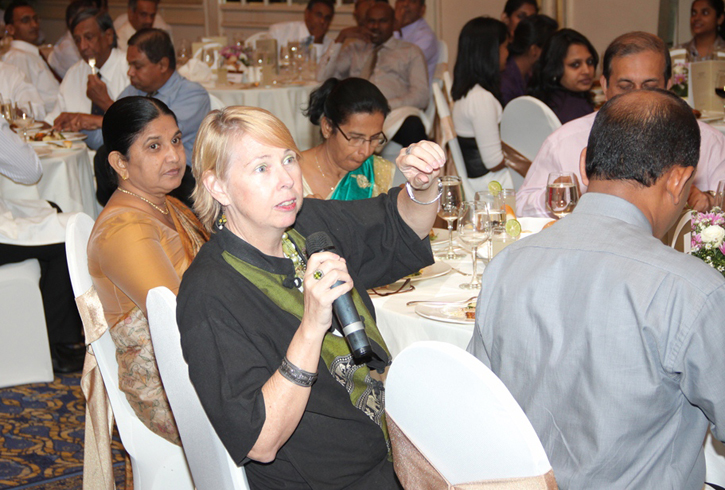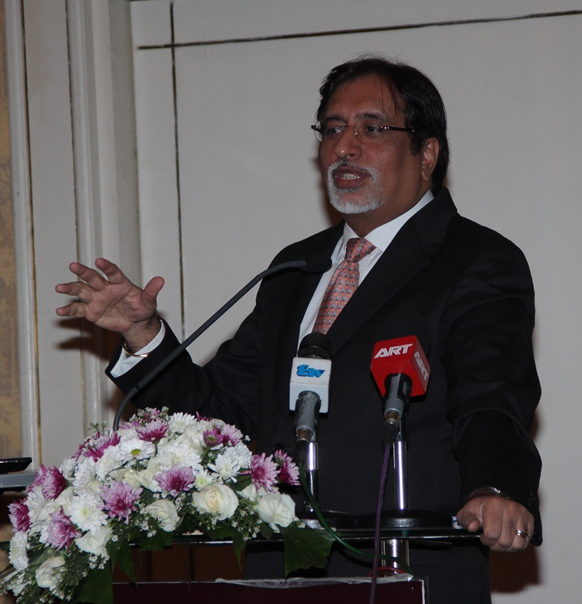In an attempt to apprise the country’s business leaders on the current economic scenario and contemporary challenges, the country’s national accounting body, The Institute of Chartered Accountants of Sri Lanka (CA Sri Lanka) together with RAM Ratings Lanka Ltd organized a forum on ‘Rising Global Risks Cloud Asian Outlook’ held on 27th March 2012 at Hilton Colombo. The Keynote Speaker at the event was Managing Director – South East Asia of Standard and Poors Rating Services - Mr. Surinder D Kathpalia. The event saw a participation of over hundred CEOs, Chairmen and Directors of country’s top corporates.
Welcoming the audience, Mr. Sujeewa Rajapakse, President CA Sri Lanka said “Having been through one of the toughest phases in history, the world economy is recovering; even though at a pace slower than initially projected. While some of the rebalancing acts triggered by the economic reconciliation process are in progress, new challenges and risks have surfaced making the situation more chaotic. The recession badly hit most of the developed economies and challenged many western economic fundamentals which were deep-rooted for decades. The global economy is woven so tightly that no country could be completely immune to the reverberations of an economic calamity that is happening in one part of the world. It is imperative that both Sri Lankan policymakers and corporate sector too being cognizant of the rising global risks in order to face them boldly. In this light, I believe this forum would be of great relevance to all of you who are at the helm organizations.”
In an insightful and comprehensive presentation, Mr. Kathpalia delved on the present macroeconomic dynamics which have created winds of uncertainty and much-discussed sovereign ratings. He said that despite the depressed economic conditions, there is no protracted recession or major financial crisis in Europe, however if the Eurozone crisis escalates, there could be spillover risks to US economy. ‘Protracted economic slowdown and health of the banking sector could impact growth, risk perception and funding availability’, he continued. Mr. Kathpalia also said that abrupt trade/capital controls, protectionism measures, idiosyncratic political risks and risk of asset bubbles would add to potential policy mistakes in tackling the rising risks.
Talking of the Asian outlook he said that the Asia felt the tremors from Europe in the second half of 2011compounded by sensitivity of the region to capital flows, trade impact more pronounced in open economies, global risk appetite and liquidity matter that even impacted the relatively domestically driven economies, oil sensitively of the region and rising oil price resulted from political instability in the Middle East etc. He said that in a nutshell, a country’s ability and willingness to honour financial obligations impact the sovereign rating and most Asian economies would remain relatively benign in this sphere, owing to economic fiscal and external resilience, but risks have intensified; policy challenges are acute; and the likelihood of the downside scenario has increased. In conclusion, he urged for political leadership which is a critical factor in policymaking and dealing with some of the uncertainties.
 |
 |
 |
 |















